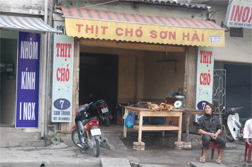by Steve Suwannarat
City authorities crack down on a practice that remains popular despite official bans on grounds of health and hygiene. In Vietnam, an estimated four million animals end up on the dinner table every year. Concern is also heightened by recent outbreaks of rabies causing death among humans.

Eating dog and cat meat has been officially banned on health and hygiene grounds in Vietnam, as well as China, and South Korea, but they remain popular, particularly among the middle aged and senior citizens who follow traditional pharmacopoeia.
In Asia, some 30 million dogs and 10 million cats are butchered each year for human consumption. While the highest number is recorded in China, ten and four million respectively, an estimated four million dogs and cats are consumed every year Vietnam.
For this reason, reports that a crackdown is underway in Hanoi is a significant development. In the capital, the authorities have issued a strict order to prevent the trade within the city limits.
Such a measure is part of a three-pronged strategy that includes enforcing existing laws and regulations, encouraging cooperation between the relevant government agencies, and performing regular inspections.
As a way to put greater pressure, the order resembles similar directives imposed during recent outbreaks of rabies (about a hundred) reported in about 30 locations across the country that resulted in human deaths.
The initiative entails a comprehensive anti-rabies vaccination campaign that will affect at least 90 per cent of domestic dogs and cats in the urban area.
Significantly, the measure also calls for raising awareness among residents of the problems that arise from living with such pets, whose contact with humans makes it possible for different diseases to be passed on.
Finally, the authorities are stressing the practical aspect of ending the dog and cat meat trade, namely bolstering tourism and turning Hanoi into a more urbane and tourist-friendly city respectful of international standards for animal welfare and food safety.
Ultimately, by leading the movement to end the dog and cat meat trade while emphasising the value of such animals only for companionship, the city, which usually gets little consideration, is seeking to improve its image.
Several organisations and municipalities have been pushing in this direction for some time, committed to eradicating traditional practices that are not justified in today’s Vietnam.
The first city to do so was Hoi An, in late 2021. Located in central Vietnam, the historic city is among the country’s main tourist destinations. An agreement signed with Four Paws International has allowed the city to eliminate a practice that was detrimental to its image and economy.
(Sources : asianews.it)
Thảo luận
Không có bình luận